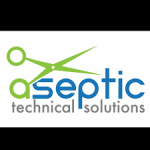
Hospitals need to keep all their instruments sterile to fight off the chance of infection in patients who are already compromised.
This is a round-the-clock endeavor and the sterile processing technician must see that protocol is followed and the environment, equipment, and tools, meet the highest standards of sterility.
A person who is most successful in this position can pay close attention to detail and follow instructions to the letter.
The individual needs to be willing to work flexible hours and feel comfortable in a fast-paced environment.
While this position doesn’t see patient contact hardly at all, it is one of the most important positions for a patient’s safe recovery.
If you have an interest in working in the medical field and believe you have the necessary traits to do this job, read on to explore some options to get you started!
Steps to Become a Sterile Processing Technician in Pennsylvania
To become a sterile processing technician in Pennsylvania, you will need to get certified.
The steps you must follow on this path are:
- Complete high school with a diploma or GED.
- Find a training program that meets your needs and complete it.
- Apply to take the Certified Registered Central Service Technician (CRCST) exam. This 3-hour, 150 multiple-choice question test is administered by the Healthcare Sterile Processing Association (HSPA).
- Upon passing the test, obtain your provisional license and seek a position. Keep track of your hours and, once you have documented 400 hours of work in the field, submit the evidence to the HSPA.
- Receive your full certificate.
Licensing Requirements for Sterile Processing Technicians in Pennsylvania
Pennsylvania is one of four states that currently require sterile processing technicians to be licensed.
Once you have completed an approved training program, you will have to apply for the CRCST test and pass it to receive a provisional license.
Then you can apply for a position and work toward the required hours you need to become fully licensed.
Sterile Processing Technician Programs in Pennsylvania

Community College of Allegheny County
CCAC has four campuses in the Pittsburgh area, as well as online options.
Their Central Service Technician program is one semester long.
It earns you 16 credits.
The total cost of the program is $1890 for Allegheny County residents, $3780 for PA students from counties other than Allegheny, and $5670 for out-of-state residents.
Students will take four classes and a clinical.
The classes are basic life support, computer applications in healthcare, inventory management for central service, and surgical & central service technology I.
Upon successful completion, students are eligible for national certification through the International Association of Healthcare Central Service Material Management (IAHCSMM).

Community College of Philadelphia
The Sterile Processing Technician at this school is 80 hours long and costs $1995.
Upon completion, you are eligible to sit for your provisional CRCST exam.
The courses you take during your program are:
- Introduction to Central Services and the Role of the Sterile Processing Technician (Central Service Technician)
- Medical Terminology
- Anatomy and Physiology
- Microbiology for Central Service
- Regulations and Standards
- Infection Prevention and Control
- Tools for Cleaning
- Decontamination
- Point of Use Preparation and Transport
- Cleaning and Decontamination
- Disinfection
- Surgical Instrumentation
- Complex Surgical Instruments
- Sterile Packing and Storage
- Point of Use Processing
- High-Temperature Sterilization
- Low Temperature Sterilization
- Inventory Management
- Management of Patient Care Equipment
- Tracking Systems
- Quality Assurance
- Safety
- Communication and Human Relations Skills
- Sterile Processing for Ambulatory Surgery and Other Practices
![]()
Philadelphia Technician Training Institute
This hands-on program gives you all the learning you need and allows you to earn a certificate as a sterile processing technician.
The program takes 31 weeks to complete, which is done over eight months.
The total cost of this certificate program is $22,838.
The classes you will cover include Intro to Central Processing, Anatomy, Physiology, and Microbiology, Decontamination, Prep, & Transport, Sterile Instrument Packaging Storage, and Communication and Service.
![]()
Erie Center for Arts & Technology (ECAT)
This program is only available to Erie County resents, but it is an intensive program that is provided by both the ECAT and UPMC-Hamot.
There is also no cost for those who are accepted into the program.
In addition, upon completion, students will be allowed to sit for their provisional exam, and have paid positions with UPMC-Hamot to gain the 400 hours of experience needed for the full certification.
At that time, they will be given a pay raise should they decide to stay on.
The course runs for 12 weeks and during that time, classroom instruction covers medical terminology, anatomy, microbiology, infection prevention, sterilization, and decontamination.
The rest of the course consists of actual hands-on instruction in a state-of-the-art medical training lab.
There is also an 8-hour shadow experience at UPMC-Hamot.

Deleware County Community College
The course offered at the Delaware County Community College lasts for 60 hours plus a 400-hour externship.
The course will prepare you to take the CRCST test but does not include a test voucher.
The 400-hour externship, however, can be used toward the requirement of the provisional license becoming a full license.
The course will cost you $1295.
During your classroom and lab training, you will study medical terminology, basic surgical procedures and terminology, aseptic techniques, sterilization techniques, and infection control.

Aseptic Technical Solutions
This course is designed to prepare future sterile processing technicians to take the CRCST test given by the HSPA.
They will also help graduates who have passed the course, find an externship to complete the required 400 hours needed.
The cost is $2000.
The course covers sterilization techniques and lessons on the medical knowledge necessary to successfully hold this position.
Students must pass the final with at least 70 percent to get their certificate.
6 Sterile Processing Technician Schools in Pennsylvania
| School Name | Address |
|---|---|
| CCAC Allegheny Campus | 808 Ridge Ave, Pittsburgh, PA 15212, United States |
| Community College of Philadelphia - Main Campus | 1700 Spring Garden St, Philadelphia, PA 19130, United States |
| Philadelphia Technician Training Institute | 1901 W Girard Ave, Philadelphia, PA 19130 |
| Erie Center for Arts & Technology (ECAT) | 650 East Ave Suite 120, Erie, PA 16503, United States |
| Deleware County Community College | 901 Media Line Rd, Media, PA 19063, United States |
| Aseptic Technical Solutions | 1478 Lardner St, Philadelphia, Pennsylvania, 19149 |
Salary of Sterile Processing Technicians in Pennsylvania
Pennsylvania sterile processing technicians earn salaries on par with the national average.
The mean salary in Pennsylvania is $39,561.
For those on the upper end of the pay scale, earnings can reach $49,170 annually.
For most entry-level positions, you are looking at a yearly salary of $31,567.
Annual Salary Range:Average Salary of Sterile Processing Technicians in Pennsylvania
| City Name | Salary |
|---|---|
| Allenwood | $38,332 |
| Adamstown | $39,442 |
| Bentleyville | $38,848 |
| Bristol | $43,049 |
| Dawson | $37,936 |
| Carnegie | $39,046 |
| Fleming | $36,192 |
| Burlington | $38,015 |
| Waynesboro | $38,451 |
| Summerhill | $35,716 |
Regional Salary
| Region | Employed | Avg. Annual Salary | Avg. Hourly Pay | Top 10% Annual Salary | Bottom 10% Annual Salary |
|---|---|---|---|---|---|
| Allentown-Bethlehem-Easton, PA-NJ | 170 | $45,260 | $21.76 | $57,550 | $37,380 |
| Erie, PA | 50 | $39,020 | $18.76 | $47,550 | $34,150 |
| Harrisburg-Carlisle, PA | 220 | $44,190 | $21.25 | $54,550 | $36,970 |
| Lancaster, PA | 90 | $42,860 | $20.61 | $53,600 | $36,470 |
| Philadelphia-Camden-Wilmington, PA-NJ-DE-MD | 1,330 | $50,030 | $24.05 | $59,010 | $39,770 |
| Pittsburgh, PA | 460 | $45,650 | $21.95 | $55,770 | $37,100 |
| Scranton--Wilkes-Barre--Hazleton, PA | 120 | $43,720 | $21.02 | $56,080 | $36,110 |
| York-Hanover, PA | 70 | $42,790 | $20.57 | $50,540 | $36,000 |
* Employment conditions in your area may vary.
Frequently Asked Questions
Do sterile processing technicians need to be licensed in Pennsylvania?
Yes, Pennsylvania is one of four states that currently require its sterile processing technicians to be licensed.
More states are considering this requirement.
The CRCST, however, is a national one and will serve you wherever you choose to work.
Are sterile processing technician programs in Pennsylvania expensive?
The cost of an approved sterile processing program in Pennsylvania will depend upon where you attend school.
You can find one-year programs at community colleges that will cost more than programs given by CareerLink, which are given at minimal or no cost.
Research will help you find the best program for your needs.
How long does it take to become a sterile processing technician in Pennsylvania?
Depending on the individual program you choose, you can have your initial training completed in as little as ten weeks, or it can take two years.
You then need to pass your CRCST test and work at least 400 hours before gaining your full license.
This page is also available in Spanish.





